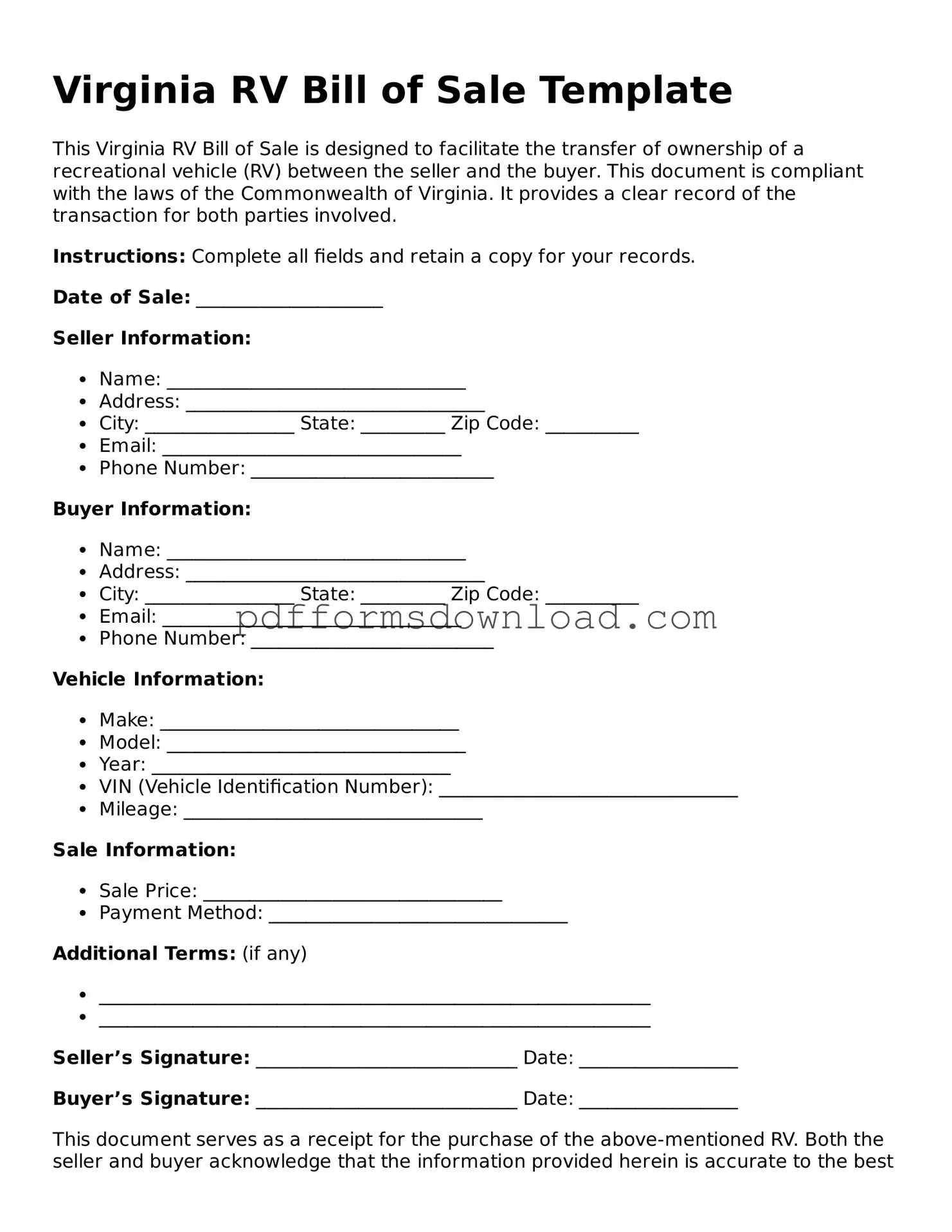What is a Virginia RV Bill of Sale?
A Virginia RV Bill of Sale is a legal document that serves as proof of the sale and transfer of ownership of a recreational vehicle (RV) in Virginia. This form includes important details about the transaction, such as the names of the buyer and seller, the vehicle's identification number (VIN), and the sale price. It protects both parties by documenting the agreement and can be used for registration purposes.
Is a Bill of Sale required in Virginia for RV transactions?
While a Bill of Sale is not legally required for all RV transactions in Virginia, it is highly recommended. Having a Bill of Sale can help clarify the terms of the sale and provide proof of ownership. It can also be beneficial if there are disputes or if the buyer needs to register the RV with the Department of Motor Vehicles (DMV).
What information should be included in the RV Bill of Sale?
The RV Bill of Sale should include several key pieces of information: the full names and addresses of both the buyer and seller, the RV's make, model, year, and VIN, the purchase price, the date of the sale, and any warranties or conditions of the sale. Both parties should sign and date the document to validate the transaction.
Can I create my own RV Bill of Sale?
Yes, you can create your own RV Bill of Sale. However, it is important to ensure that all necessary information is included to make the document valid. Many templates are available online that can help guide you in drafting a comprehensive Bill of Sale. Just be sure to check that it complies with Virginia state requirements.
Do I need to have the Bill of Sale notarized?
In Virginia, notarization is not required for a Bill of Sale to be valid. However, having the document notarized can provide an additional layer of security and authenticity. It may also be beneficial if you plan to register the RV or if there are any disputes in the future.
How do I use the RV Bill of Sale for registration?
To use the RV Bill of Sale for registration, you will need to present it to the Virginia DMV along with other required documents, such as proof of identity and any title documents. The Bill of Sale will serve as proof of purchase and ownership, facilitating the registration process for the new owner.
What if the RV has a loan or lien on it?
If the RV has a loan or lien, it is crucial to address this before completing the sale. The seller should provide proof that the lien has been satisfied or work with the lender to ensure that the lien is released upon sale. The Bill of Sale should clearly indicate any outstanding liens to avoid complications for the buyer.
Can I use a Bill of Sale from another state?
While you may use a Bill of Sale from another state, it is advisable to use a Virginia-specific form to ensure compliance with state laws. Each state may have different requirements regarding the information that must be included in the Bill of Sale. Using a Virginia form helps ensure that all necessary information is captured correctly.
Where can I find a Virginia RV Bill of Sale template?
Virginia RV Bill of Sale templates can be found online through various legal document websites, state government resources, and even local DMV offices. These templates often provide a clear format and include all necessary sections to fill out, making it easier to create a valid Bill of Sale for your transaction.

